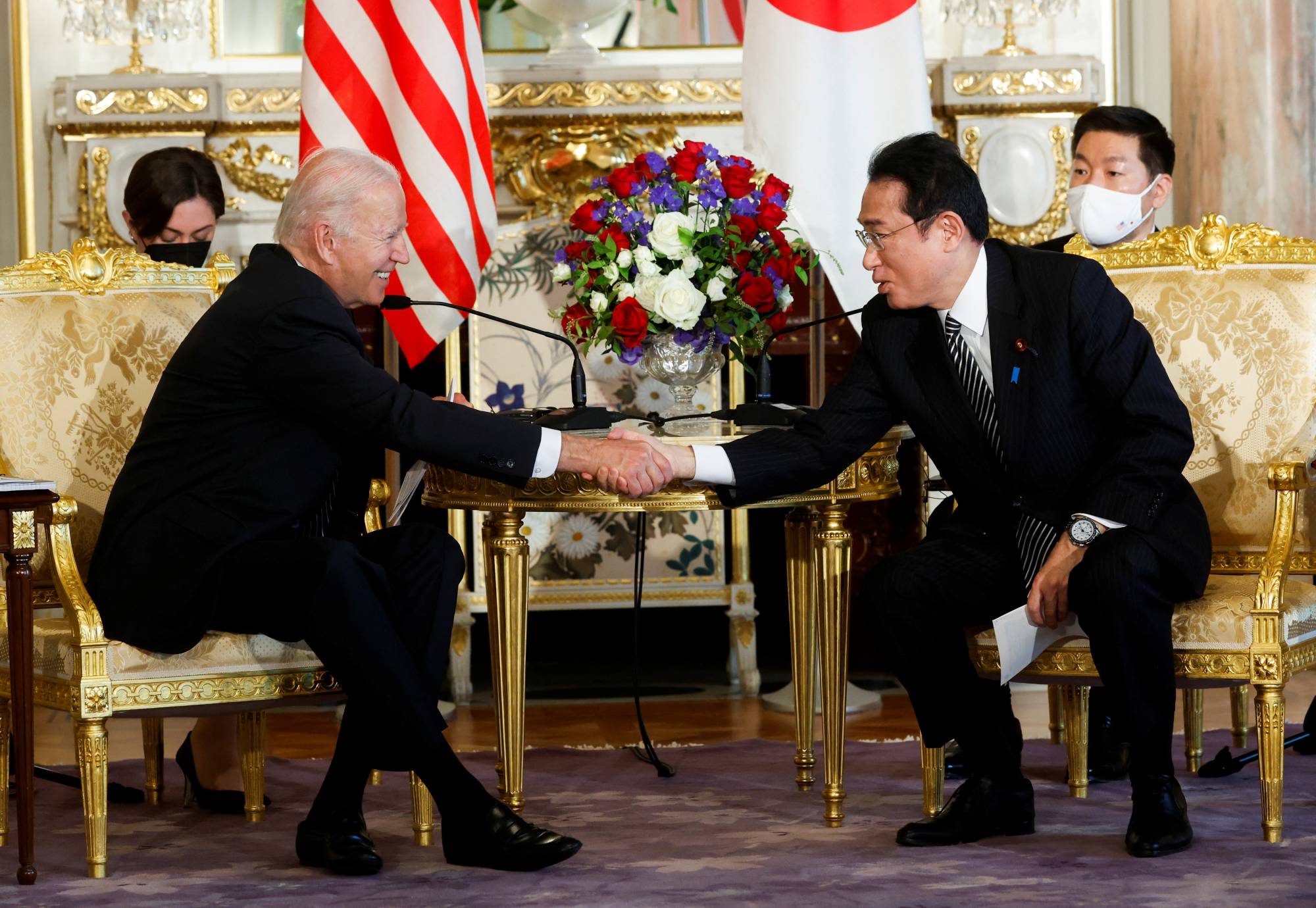Prime Minister Fumio Kishida and Japan could not have hoped for a better and more comforting visit by U.S. President Joe Biden.
The list of deliverables was long and meaty. As important, though, was confirmation that Japan remains a priority for the U.S., the alignment of the two men’s visions for global order and the affirmation of Japan’s critical role in the region and beyond.
As this country’s only ally, reiteration of the longstanding U.S. position that the bilateral alliance is “the cornerstone of peace and prosperity in the Indo-Pacific” is more than diplomatic boilerplate. Biden’s statement that “the U.S. remains fully committed to Japan’s defense” matters greatly as countries like China and Russia seek to rewrite rules and redraw borders through the use of force. His pledge that the two countries will “face the challenges of today and in the future together” takes on greater meaning following reports that Chinese and Russian aircraft conducted joint operations in skies near Japan as the two men met.

















With your current subscription plan you can comment on stories. However, before writing your first comment, please create a display name in the Profile section of your subscriber account page.